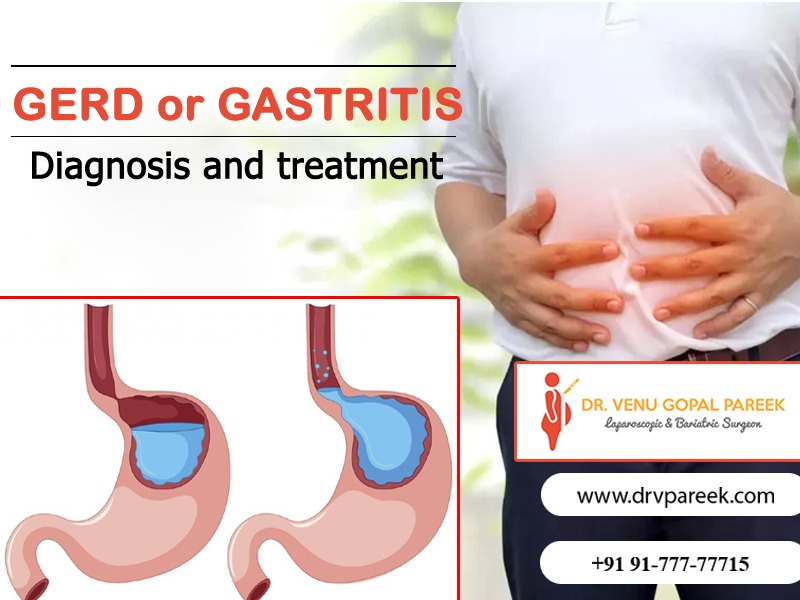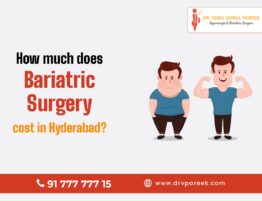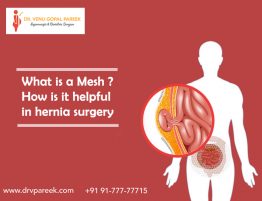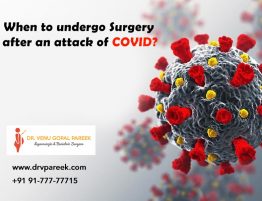
Gastric acids and ingested fluids can affect the lining of the stomach tissue. Acid flow into the oesophagus due to acid reflux (backflow or acidic fluid movement upwards) can also cause irritation and pain in the oesophagus lining. Inflammation, pain, and erosion of the digestive system’s lining due to stomach acid are classified as gastritis and gastrointestinal reflux disease.
Gastritis is defined as inflammation of the lining of the stomach (gastro= stomach, itis= inflammation). Most of us think that gastritis and reflux (GERD) are pretty much the same. However, gastritis is different from reflux. You can experience reflux and gastritis, but you can experience them separately.
A little anatomy can help explain the difference between gastritis and GERD. The oesophagus meets the stomach; there is the sphincter muscle (known as the lower esophageal sphincter or cardiac sphincter). This sphincter allows food to enter the stomach and prevents food from flowing into the oesophagus. Some reflux is normal. If acid irritates the lining of the oesophagus, the result is GERD. While GERD is associated with irritation of the oesophagus, gastritis is related to irritation of the stomach.
Let us see this article to know more about GERD and Gastritis and their Diagnosis And Treatment.
What is gastritis?

Gastritis is the inflammation of the lining of the stomach. It can happen gradually and take a long time. Although it doesn’t cause heartburn, some symptoms are similar to those caused by heartburn. They are treated similarly to gastro-oesophageal reflux disease (GERD) by taking medications to reduce stomach acid. Inflammation, pain, or erosion of the lining of the stomach is called gastritis. This inflammation can be short term (acute) or long term (chronic). There are four types based on the location and type of ulcer:
- Pangastritis: Gastritis that affects the entire stomach
- Antral gastritis: Gastritis antrum, lower stomach
- Erosive Gastritis: Prolonged exposure to stomach acid can irritate damage and erosion of the inner lining. Depending on the degree of deterioration, acute gastritis can be either superficial erosive gastritis or deep erosive gastritis.
- Hemorrhagic Gastritis: In extreme cases, erosions may be accompanied by bleeding, hence the name acute hemorrhagic gastritis.
What is Heartburn or GERD?

Heartburn, medically known as gastroesophageal reflux disease (GERD), is caused by stomach acid flowing back into the tube connecting the mouth and stomach (oesophagus). This acid reflux causes irritation and inflammation of the oesophagus, which is medically known as esophagitis.
What causes gastritis and GERD?

Several factors irritate the lining of the digestive system:
- Imbalance of protective chemicals and aggressive acids from the digestive system.
- Movement of bile from the gallbladder in the stomach and backflow of gastric juices into the oesophagus.
- Stress
- Repeated or prolonged vomiting
- Excessive alcohol consumption
- Frequent use of drugs such as aspirin or other pain relievers
- Long-term presence of Helicobacter pylori (H. pylori) bacteria in the stomach,
- Rare gastric ischemia
What are the symptoms of gastritis and GERD?

Symptoms vary from person to person. Sometimes there are no symptoms. Common symptoms are:
- Stomach bloating
- Burns in the stomach area between meals or at night
- Reduces hunger
- Frequent stomach pain
- Hiccup
- Poor digestion and belching
- Stomach and back pain
- Vomit
- Erosions, ulcers and bleeding
Acid reflux irritates the lining of the oesophagus and causes one or more of the following GERD symptoms:
- Chest pain
- Difficulty swallowing
- Heartburn or heartburn after eating, sometimes worse at night
- Backflow of acid into the mouth
- Food that passes into the oesophagus, symptoms of gastritis
Risk factors of gastritis and GERD?

Some of the conditions that increase your risk of GERD and gastritis include:
- Medical conditions like hiatal hernia and scleroderma
- Increased alcohol or coffee consumption
- Some foods such as fatty or fried foods
- Eat large, heavy meals, especially at night
- Delay in emptying the stomach
- Medicines such as aspirin, NSAIDs (pain relievers)
- Overweight/obesity
- pregnancy
- Smoke
When should you consult a doctor?
In either case, talk to your doctor if you have been taking OTC medications for stomach symptoms for more than two weeks.
- Gastritis: Should treat all gastritis symptoms immediately. Even after diagnosis, symptoms may worsen, new symptoms may appear, or treatment may not help. In both cases, contact your doctor directly.
- GERD: Although chest pain is a common symptom of GERD, seek medical help immediately, especially if chest pain is accompanied by shortness of breath or pain radiating to the jaw or arm. You should also see your doctor if you experience GERD symptoms regularly and take medications to treat heartburn twice a week.
Diagnosis of Gastritis:

Several tests can be used to diagnose gastritis. They are:
- A detailed medical history
- Physical examination
- Upper gastrointestinal endoscopy: The doctor places an endoscope, a thin tube with a small space, through your mouth (or sometimes your nose) and down your stomach to examine the lining of your stomach. The doctor will look for inflammation and take a small tissue sample to be analysed (biopsy).
- Complete blood count (CBC): Your doctor may check your blood count to see if you have anaemia, which means you don’t have enough red blood cells. In gastritis, patients may suffer from anaemia that can be caused by bleeding from the stomach.
- Faecal occult blood test: This test looks for blood in the stool, a sign of bleeding somewhere in the digestive tract.
- Breath test: A breath test is done to look for H. Pylori, a possible cause of gastritis.
GERD diagnosis:

To determine if you have GERD, your doctor will do a physical exam and ask about your previous health. Some people with typical symptoms can be treated without further testing. Other tests for GERB may include:
- Upper digestive tract radiology studyor barium swallow: This test examines the upper digestive system’s organs. They will check the oesophagus, stomach, and the first part of the small intestine (duodenum). A small metal liquid called barium is swallowed by the patient which covers the organs to be seen on X-rays.
- Upper endoscopy or EGD (esophagogastroduodenoscopy): This test looks at the lining or inside the oesophagus, stomach, and duodenum. This test uses a thin, lighted tube (endoscope), which has space at one end. The tube is placed in the mouth and throat. Then into oesophagus, stomach, and duodenum. If necessary, he or she may also take a small tissue sample (biopsy).
- Bernstein test: This test will help determine if acid in your oesophagus is causing your symptoms. The test is done by dripping a mild acid through a tube in the oesophagus.
- Oesophageal manometry: This test checks the strength of the oesophageal muscles. They can see if you have problems with reflux fluids or swallowing. A small tube is inserted into the nostrils, then down the throat and oesophagus. The tube tests how much pressure your oesophageal muscles are exerting.
- pH monitoring: This test checks the pH (acid level) in the oesophagus. A thin plastic tube is inserted into your nostrils, throat and oesophagus. The tube has a sensor that measures pH. The other end of the tube outside your body is connected to a small monitor that records pH 24 to 48 hours. It would be best to keep a book about the symptoms you feel and the foods you eat. Your pH value will be checked during this period and compared to your activity.
- Impedance test: This test can see reflux as well as non-acidic fluids and air. This is combined with pH monitoring.
What are the Treatments for Gastritis and GERD?

Gastritis:
- Depending on the cause, your doctor or gastroenterologist will prescribe medication to treat gastritis. Gastritis medication protects tissue exposed to stomach acid, reduces gastric acid secretion, and promotes healing, helping relieve symptoms and aid healing.
- Antacids or other drugs such as Pepcid (famotidine), which reduce or neutralise stomach acid in the stomach, or proton pump inhibitors such as Prilosec usually relieve symptoms and promote healing.
- Gastritis due to malignant anaemia is treated with vitamin B12. You may also be asked to avoid certain foods, drinks, or drugs.
- If an infection causes your gastritis, can also treat this problem. For example, your doctor may prescribe antibiotics and proton pump inhibitors to clear H. pylori infection.
After the underlying problem clears up, gastritis usually occurs. Talk to your doctor before stopping any medication or starting self-medication for gastritis.
GERD:

GERD medications reduce gastric acid reflux into the oesophagus, prevent tissue damage, and prevent GERD complications and recurrences. GERD that is prolonged and unresponsive to treatment can lead to complications such as Barrett’s oesophagus. If symptoms get worse or complications, your doctor may recommend upper bowel endoscopy with or without surgery.
- Take medications to reduce stomach acid (antacids)
- Take drugs called H2 blockers and proton pump inhibitors. Taking this medicine before meals can stop heartburn.
- Prescription medication that helps empty the stomach of food (promotional drugs). However, this drug is rarely used to treat reflux disease unless there are other problems.
- An operation called fundoplication. This is sometimes done to hold the oesophagus in place and stop the fluid flow (reflux).
Some lifestyle changes can help relieve symptoms and heal faster. Following are the conventional treatment and prevention procedures for gastritis and GERD include:
- Eat simple foods like ripe bananas and clear soup until symptoms improve.
- Avoid spicy and greasy foods
- Avoid eating late at night
- Eat small portions and often
- Limit tea and coffee
- Avoid alcohol
- Get regular exercise
- Take control of your weight
- Quit smoking
- Stress Relief – Participate in stress-reducing activities such as meditation, yoga, and more.
To learn more about gastritis and GERD and their management, you can contact Dr Venu Gopal Pareek.
About Dr Venugopal Pareek – Best Gastric Surgeon
Dr Venugopal Pareek, a Consultant Laparoscopic and Gastric Surgeon in Sunshine Hospitals has done more than 9000 surgeries in 12 years. He is one of the best gastric surgeons in India. He has attended several conferences and published articles on gastric surgery in various national and international journals
Conclusion:
If you suspect that you may have GERD or Gastritis and signs and symptoms are getting worse or experience nausea, vomiting, or difficulty swallowing, talk to your doctor. Prescription medication can help. In some cases, it can treat GERD or gastritis with surgery or other procedures.
To learn more about gastritis and GERD their management, and for the best treatment, you can call 091777 77715. Dr Venu Gopal Pareek gastritis specialist will meet you and answer all your questions.







